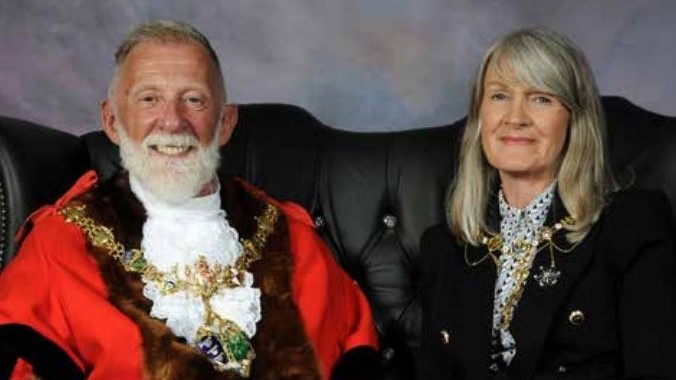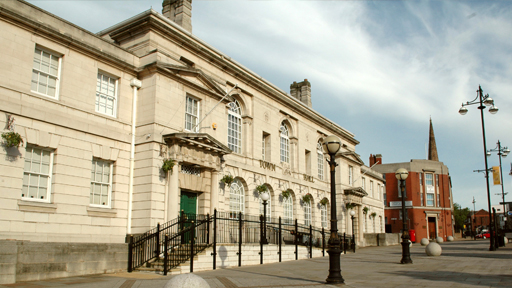Agenda item
Questions to Cabinet Members
Minutes:
(1) Councillor Gilding asked, in view of the recent spate of metal thefts, was the Council pursuing alternative means of producing street signs, grates etc., in non-metallic materials?
Councillor Smith reported that during the current financial year there had been approximately seventy thefts of road gully covers. Following a trial of alternatives from different suppliers, Streetpride had identified three different types of plastic replacement gully covers which fit into the majority of the existing road gully network and could be used as permanent replacements. This enabled the Service to respond quicker to keeping the highway safe, but there was also a cost saving of around £60 - £80 per unit in not having to purchase and fix more expensive metal cover and frames.
There was a peak in thefts last summer which had reduced in recent months. However, in the Rother Valley South area they were now seeing a rise in thefts of third party hydrant and manhole covers which were the responsibility of the respective utility companies, water, gas etc. When reports were received of this nature, the utility company was notified and if necessary were asked to temporarily make the highway safe for members of the public.
Thefts were reported to South Yorkshire Police so their local teams could be extra vigilant in these locations.
(2) Councillor Middleton asked, in view of the national publicity concerning the unlawful re-letting of Council properties by tenants, was there any evidence of such sub-letting in Rotherham, what prevention safeguards are in place, how were they detected and what were the procedures for eviction of the sub-tenant and termination of the original tenancy?
Councillor McNeely reported that with regard to evidence of sub-letting in Rotherham, there had only been a small number of cases where the Council had suspected and investigated sub-letting. These had mainly been detected in response to “whistle blowing” from either members of the public, staff or external contractors. The outcome of the investigations had resulted in either the tenant moving back in to retain their tenancy or they had denied the allegation but had later terminated the tenancy and handed in the keys.
If the changes proposed in the Government’s Social Housing Fraud consultation were implemented, sub-letting would no longer be a civil matter, but a criminal offence with Council tenants who sub-let their homes facing up to two years in prison with a fine of up to £50,000.
With regard to current safeguards/prevention methods in place, as part of a nation wide crackdown on social housing fraud, Rotherham was allocated £30,000 to spend on measures to reduce illegal sub-letting. Items of expenditure have included:-
· Setting up a common housing register with Registered Social Landlords.
· Advertising and PR for the Government initiative to reward people for providing information that lead to properties being recovered. No instances or rewards have been issued.
· Setting up of a dedicated phone line and email address for confidentially reporting tenancy fraud.
· There were checks ‘up front’ on pre-tenancy validations. These included, for example, checking photo identification before a formal offer of a tenancy was made.
· The Council’s Tenancy Agreement and Customer Handbook had specific sections that complied with best practice guidance.
· There was a high level of awareness amongst staff
In addition, as part of The National Fraud Initiative, the Authority was working with Fujitsu (at no cost to Rotherham), who would cross check the information that we had regarding our tenancies with a range of other available databases, to identify the likelihood of any potential fraudulent activity concerning our properties.
(3) Councillor Turner stated that the other day a Co-opted Member of a Select Commission complained about being cold in the Council Chamber and was told that there were problems with the heating system and asked was it understood that after spending nearly £3 million on the Town Hall that this age old problem was not rectified?
Councillor Smith explained that the Council Chamber had been visited on 31st January, 2012 to check the temperature which was found to be 18.5c and the controls had been set to 19c. The controls were, therefore, reset to the correct setting of 22c.
(4) Councillor Mannion asked what bonuses had the Chief Executive and Strategic Directors received over the last three years and what were the criteria for paying?
The Leader reported that there had been no bonuses paid either to the Chief Executive or Strategic Directors over the last three years and there was no criteria for such payments.
(5) Councillor Middleton asked if there were any discussions taking place or projected with nearby authorities on the joining of services over and above those already disclosed?
Councillor Akhtar reported that the Council was looking at various potential opportunities for joining up services with neighbouring authorities where to do so would provide mutual benefits to participating authorities and their residents. In the main, the opportunities being explored were where the Council had strong services that it could share with other authorities.
Discussions in relation to these were at various stages and were clearly confidential in nature until some certainty had been reached over any proposals. Further details would be available, as appropriate, as any proposals developed.
(6) Councillor Turner asked if the case for going for the option to take on the lease for the new offices seemed to have been aided by the estimated horrendous maintenance figures that would accrue if the present offices were kept, and if the same formula was being used what maintenance budget would be needed for the new building?
Councillor Smith reported that the annual cost of Riverside House was estimated at £2.669 million per annum, against an estimated annual cost of £5.85 million per annum if the Council had stayed in refurbished existing offices.
However, in the last month, Asset Management had reduced the estimated annual running costs of Riverside House by £300,000 to £2.369 million per annum, giving an annual reduction of £3.481 million per annum or £121.87 million over thirty-five years.
(7) Councillor Turner reported a representative of Tesco has advised him that the public would be allowed to park for up to three hours in their car park and he asked was this correct?
Councillor Smith reported that the planning application for the new Tesco store proposed two hours free car parking. The Council was currently carrying out consultation on the proposal and considering the information submitted and a final decision had not yet been taken on the acceptability of the scheme.




